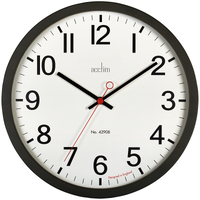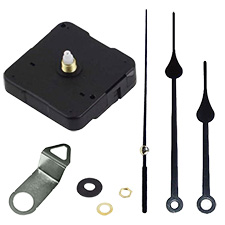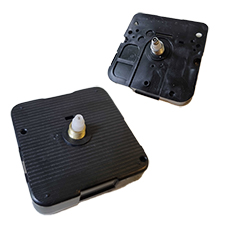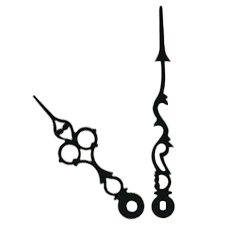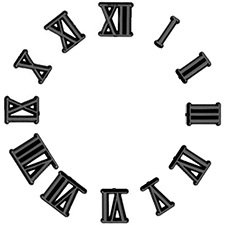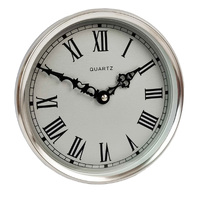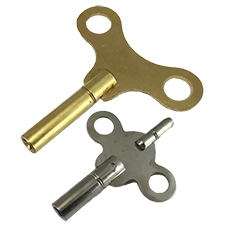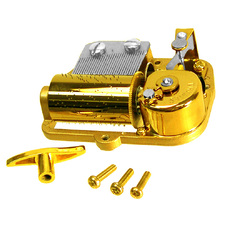Keeping Your Clock Ticking: A Guide to At-Home Maintenance
Author: Clock Shop Date Posted:7 February 2024
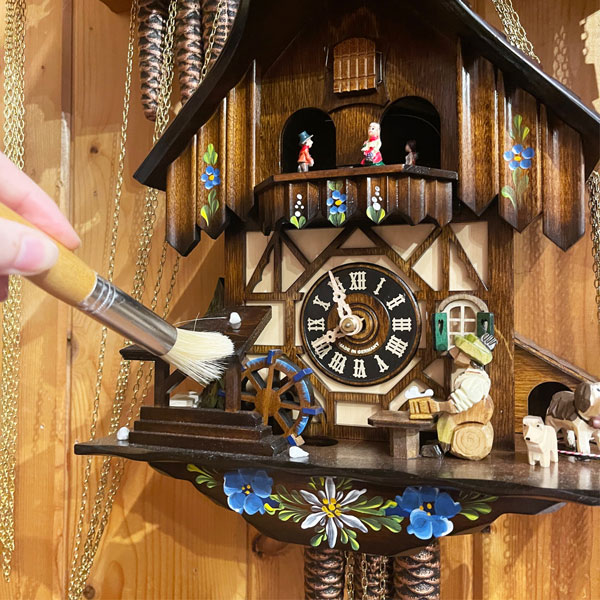
Clocks are more than just timekeepers. They are often cherished family heirlooms, stylish interior accents, and reliable daily companions. But like any treasured possession, they require a little TLC to stay in good working condition. This guide will provide you with some simple steps to ensure your clock keeps ticking for years to come.

Cleaning with Care
Dusting: Regularly dust your clock with a soft, dry microfibre cloth, feather duster or a specific clock dusting brush. Avoid the use of harsh chemicals or abrasive cleaners, as they can damage the finish.
Glass: For clocks with glass covers, use a clean, lint-free cloth dampened with water or a mild glass cleaner. Be careful not to spray directly onto the glass, and avoid areas with special finishes. You can use a paper towel to wipe off excess water and to give the glass a clean finish.
Metal: For exposed metal parts, a soft, dry cloth will do. If needed, use a metal polish specifically designed for clocks. Follow the manufacturer’s instructions closely. Remember, less is more– over-polishing can wear away finishes. Never use abrasive materials or household cleaners, which can leave permanent marks.
Winding and Chiming
Consistency is key: For mechanical clocks, consistent winding is crucial. Wind the clock regularly, ideally at the same time each day or week, to prevent strain on the springs. Overwinding can damage the mechanism, so be sure to wind until you feel resistance rather than force.
Chiming clocks: Don't silence the chimes unless necessary. Regular chiming helps keep the movement lubricated.
Quartz Clock Maintenance
Change the Batteries: Batteries should be changed once a year with brand new, high quality alkaline batteries that have been purchased in the last few weeks. This will ensure the clock doesn’t suffer from battery leakage and terminal corrosion.
Changing the Time: If your clock has a time adjustment wheel at the back of the clock, be sure to use this instead of moving the hands to adjust the time. Moving the hands can cause them to be pushed out of alignment or damaged, leading to further issues.
For Clocks With No Adjustment Wheel: Some battery clocks like quartz cuckoo clocks don’t have adjustment wheels, and therefore need their time adjusted by moving the hands. If you find your clock doesn’t have an adjustment wheel, you can adjust the time by carefully moving the minute hand clockwise around the dial at a slow pace. To correctly move the minute hand, place your index finger on the hand close to the shaft, where the hand is usually wider. Go slowly past the hour hand, ensuring you don’t catch and drag the hour hand as the minute hand goes past.
Location in the Home
Temperature: Clocks prefer stable temperatures. Avoid placing them near heat sources like radiators or fireplaces, or in direct sunlight, or cool sources like directly in front of an air conditioner (which can also increase the dust gathered on the clock) Extreme temperature fluctuations can warp wood, fade acrylic and finishes, and affect delicate mechanisms.
Humidity: Avoid excessively humid environments, which can encourage rust and tarnish. Basements or kitchens with fluctuating temperatures might not be ideal clock habitats
Stability: A level surface is crucial. For wall clocks, use a sturdy screw that has been sunk into a wall stud, and ensure the clock is properly anchored and flat against the wall. Table and grandfather clocks should sit on a flat, stable surface. Some grandfather and floor clocks have adjustable feet to help level the clock.
Final Tips
Prevention is Key: Regular dusting, gentle cleaning, and consistent winding will go a long way in preserving your clock's health.
Respect the Age: Antique or delicate clocks might require specialised care. Consult a qualified clockmaker for cleaning, lubrication, or repairs.
Professional Touch: Regular professional servicing (around every 7-10 years) can keep your clock in optimal condition, extending its lifespan and preserving its value. If you live near the ocean, or in an overly humid area, consider a professional service every 5 years, as the additional moisture and salt in the air can speed up wear.
Log Everything: Keep a logbook of your clock’s maintenance. Ask a clockmaker to note down the work completed so you can keep a detailed record.
By incorporating these simple tips into your routine, you can ensure your beloved clock continues to tell time for generations to come. And remember, for serious issues or specialised maintenance, don't hesitate to seek the expertise of a qualified clockmaker. After all, your clock deserves the best care to keep its mechanics strong and its history alive.
Happy ticking!
Comments (2)
Maintenance
By: Sylvia on 13 February 2024Thank you for such informative advice,
Clock maintenance
By: Rita Evans on 9 February 2024Hi thank you for these helpful hints..glad to know I'm on the right track with my clocks.


